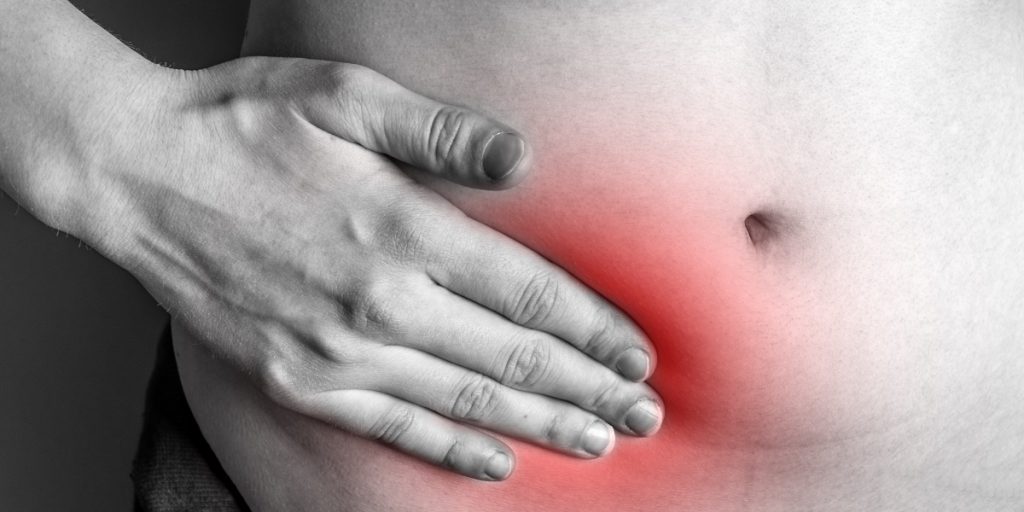Home >

Nội dung bài viết / Table of Contents
This post is also available in: Tiếng Việt (Vietnamese)

An inguinal hernia occurs when tissue, such as part of the intestine, protrudes through a weak spot in the abdominal muscles. The resulting bulge can be painful, especially when you cough, bend over or lift a heavy object.
An inguinal hernia isn’t necessarily dangerous. It doesn’t improve on its own, however, and can lead to life-threatening complications. Your doctor is likely to recommend surgery to fix an inguinal hernia that’s painful or enlarging. Inguinal hernia repair is a common surgical procedure.
Hernias are more common in men. A woman may get a hernia while she is pregnant because of the pressure on her belly wall. Please discuss with your doctor for further information.
The common symptoms of inguinal hernia are:
You should be able to gently push the hernia back into your abdomen when you’re lying down. If not, applying an ice pack to the area may reduce the swelling enough so that the hernia slides in easily. Lying with your pelvis higher than your head also may help.
Incarcerated hernia
If you aren’t able to push the hernia in, the contents of the hernia can be trapped (incarcerated) in the abdominal wall. An incarcerated hernia can become strangulated, which cuts off the blood flow to the tissue that’s trapped. A strangulated hernia can be life-threatening if it isn’t treated.
Signs and symptoms of a strangulated hernia include:
If any of these signs or symptoms occurs, call your doctor right away.
Signs and symptoms in children
Inguinal hernias in newborns and children result from a weakness in the abdominal wall that’s present at birth. Sometimes the hernia will be visible only when an infant is crying, coughing or straining during a bowel movement. He or she might be irritable and have less appetite than usual.
In an older child, a hernia is likely to be more apparent when the child coughs, strains during a bowel movementor stands for a long period. There may be some symptoms not listed above. If you have any concerns about a symptom, please consult your doctor.
See your doctor if you have a painful or noticeable bulge in your groin on either side of your pubic bone. The bulge is likely to be more noticeable when you’re standing, and you usually can feel it if you put your hand directly over the affected area. Seek immediate medical care if a hernia bulge turns red, purple or dark.
Some inguinal hernias have no apparent cause. Others might occur as a result of:
In many people, the abdominal wall weakness that leads to an inguinal hernia occurs at birth when the abdominal lining (peritoneum) doesn’t close properly. Other inguinal hernias develop later in life when muscles weaken or deteriorate due to aging, strenuous physical activity or coughing that accompanies smoking.
Weaknesses can also occur in the abdominal wall later in life, especially after an injury or abdominal surgery.
In men, the weak spot usually occurs in the inguinal canal, where the spermatic cord enters the scrotum. In women, the inguinal canal carries a ligament that helps hold the uterus in place, and hernias sometimes occur where connective tissue from the uterus attaches to tissue surrounding the pubic bone.
There are many risk factors for inguinal hernia, such as:
The information provided is not a substitute for any medical advice. ALWAYS consult with your doctor for more information.
A doctor can easily push these hernias back into your abdomen when you are lying down. However, if this is unsuccessful, you may have a strangulated inguinal hernia. Your doctor can make this determination during a physical exam. During the exam, your doctor will ask you to cough while standing so they can check the hernia when it’s at its largest.
Surgery is the primary treatment for inguinal hernias. It’s a very common operation and a highly successful procedure when done by a well-trained surgeon. Your doctor will recommend either herniorrhaphy (“open” repair) or laparoscopic surgery (done through a small scope).
Open repair involves making an incision into the groin and returning the abdominal tissues to the abdomen and repairing the abdominal wall defect. Laparoscopy uses several short incisions rather than a single, longer incision. This surgery may be preferable if you want a shorter recovery time.
Read more: Menstrual Disorder
What are some lifestyle changes or home remedies that can help me manage inguinal hernia?
The following lifestyles and home remedies might help you avoid inguinal hernia:
If you have any questions, please consult with your doctor to better understand the best solution for you.